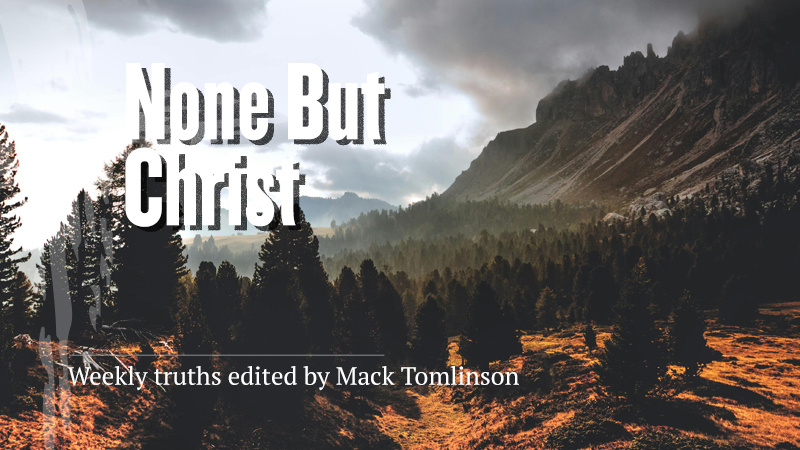
Blessed by my Master’s name, this disorder [a violent sickness from which he was just recovering] found me employed in his service. It seized me in the pulpit, like a soldier wounded in the field.
This has been a busy summer with me. In about two months I rode about five hundred miles and preached about forty sermons. This affords me some pleasure in the review. But the mixture of sin, and of many nameless imperfections that run through and corrupt all my services, give me shame, sorrow and mortification. My fever made unusual ravages upon my understanding, and rendered me frequently delirious, and always weak-minded But when I had any little sense of these things, I generally felt pretty calm and serene; and then death, that mighty terror, was disarmed. Indeed, the thought of leaving my dear family destitute, and my flock shepherdless, made me often start back and cling to life; but in other respects, death appeared a kind of indifferency to me.
Formerly I have wished to live longer, that I might be better prepared for heaven, but this consideration had very little weight with me for a very unusual reason, which was this: After a long trial, I found this world a place so unfriendly to the growth of everything divine and heavenly, that I was afraid if I should live any longer, I should be no better fitted for heaven than I am. Indeed, I have hardly any hopes of ever making any great attainment in holiness while in this world, though I should be doomed to stay in it as long as Methuselah. I see other Christians indeed around me make some progress, though they go on with but a snail-like motion. But when I consider that I set out about twelve years old, and what positive hopes I then had of my future progress, and yet that I have been almost at a stand ever since, I am quite discouraged.
O, my good Master, if I may dare call thee so, I am afraid I shall never serve thee much better on this side the regions of perfection. The thought grieves me; it breaks my heart, but I can hardly hope better. But if I have the least spark of true piety in my breast, I shall not always labor under this complaint. No, my Lord, I shall yet serve thee; serve thee through an immortal duration; with the activity, the fervor, the perfection of the rapt seraph that adores and burns. I very much suspect this desponding view of the matter is wrong, and I do not mention it with approbation, but only relate it as an unusual reason for my willingness to die, which I never felt before, and which I could not suppress.
I am rising up, my brother, with a desire to recommend Him better to my fellow-sinners, than I have done. But alas! I hardly hope to accomplish it. He has done a great deal more by me already, than I ever expected, and infinitely more than I deserved. But He never intended me for great things. He has beings both of my own, and of superior orders that can perform Him more worthy service. O! if I might but untie the latchet of His shoes, or draw water for the service of His sanctuary, it is enough for me. I am not an angel, nor would I murmur because I am not.
In my sickness, I found the unspeakable importance of a Mediator, in a gospel for sinners. O, I could have given you the word of a dying man for it, that Jesus, that Jesus whom you preach, is indeed a necessary and an all-sufficient Savior. Indeed He is the only support for a departing soul. None but Christ, none but Christ! Had I as many good works as Abraham or Paul, I would not have dared build my hopes on such a quicksand, but only on this firm eternal Rock.
– Samuel Davies
[Samuel Davies (1723-1761) was a Presbyterian minister and evangelist, and also served as President of Princeton University, first known in his era as the College of New Jersey. Martyn Lloyd-Jones described Davies as “the best preacher America ever produced.”]
